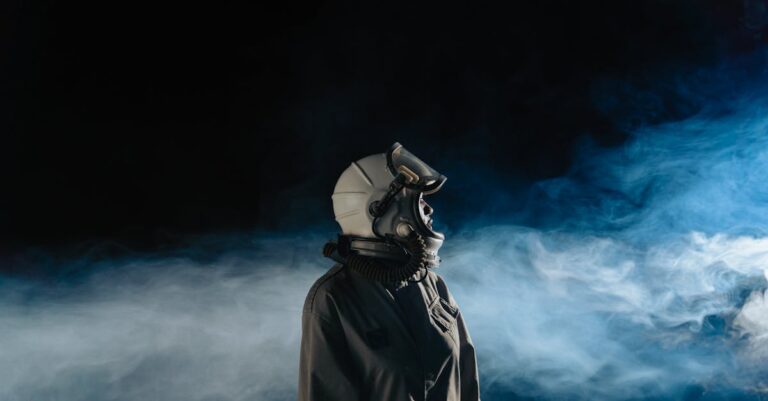
The air smelled of rust and pine when Mira found the first bone. She knelt in the dirt, her fingers brushing the jagged edge of a femur, and wondered if it had been there since the mine closed in 1947. The town called it the Hollow, a cavernous wound in the earth where three boys vanished two decades back. Mira’s brother, Eli, had been the last to go.
She’d traced his last steps to the edge of the woods, where the trees thinned and the ground sloped into a gully. The sheriff had told her to stop digging, but the bone was real. It pulsed under her touch, not with life, but with something else—something that made her pulse quicken. She pocketed it, the cold metal biting through her gloves, and turned back toward the road.
The town had a way of swallowing people. Mira had seen it with Eli, with the boys before him. They’d all been good kids, kids who asked too many questions or wandered where they shouldn’t. The mine was a scar on the earth, and the town was a wound that never healed. But Mira wasn’t like the others. She’d spent her life chasing shadows, and she wasn’t about to stop now.
The second bone was in the schoolyard, buried beneath the old oak where Eli had carved his initials. Mira dug until her nails bled, until the earth tasted like iron. The bone was smaller, a rib, and it felt warmer than the first. She held it to her chest, feeling the faint hum of something ancient. The sheriff’s voice echoed in her mind: *Some things are better left buried.* But Mira had never been good at listening.
She found Kael that night, sitting on the edge of the mine’s perimeter. He was a stranger, or so he claimed, but his eyes were too knowing, too sharp. He didn’t flinch when she showed him the bones. Instead, he reached out, his fingers brushing hers as he took the rib. The air between them crackled, not with electricity, but with something older, something that made Mira’s breath catch.
“You shouldn’t be here,” he said, his voice low, like gravel underfoot.
“And you should?” she shot back, her voice steady despite the tremor in her hands.
He didn’t answer. He just stared at the bone, his expression unreadable. Mira studied him—his dark hair, the scar running from his temple to his jaw, the way he carried himself like he’d seen too much. She didn’t trust him, but she didn’t have a choice. The bones were leading her somewhere, and Kael was the only one who seemed to know where.
They found the entrance at dawn, hidden beneath a tangle of brambles and moss. The air inside was colder, thick with the scent of damp stone and something else—something metallic, like blood. Mira’s flashlight flickered as they descended, casting jagged shadows on the walls. The tunnel narrowed, then opened into a vast chamber filled with bones. Not just animal bones, but human ones, arranged in patterns that made no sense. Some were stacked like firewood, others strung together like beads on a necklace.
Kael ran his hand over a skull, its eye sockets hollow and empty. “This isn’t just a mine,” he said. “It’s a grave.”
Mira’s stomach twisted. She’d suspected as much, but hearing it out loud made it real. The sheriff had known. The townspeople had known. They’d all kept the secret, burying the dead and the truth alike. But why? What were they hiding?
A noise echoed through the chamber—distant, but unmistakable. Footsteps. Mira froze, her heart hammering. Kael grabbed her hand, his grip tight, and pulled her into the shadows. They waited, breaths shallow, as the footsteps grew louder. Then, a voice—low, gravelly, and familiar.
“You shouldn’t have come here,” the sheriff said.
Mira’s blood ran cold. The man who’d told her to stop was now threatening her. She glanced at Kael, who met her gaze with a grim determination. They weren’t going to let him stop them. Not this time.
The sheriff’s flashlight cut through the darkness, illuminating the bones. Mira clutched the rib tighter, feeling the hum intensify. The bones were alive, or at least they felt that way. They whispered to her, not in words, but in sensations—fear, anger, desperation. She could almost see the faces of the missing boys, their eyes pleading for help.
“I know what you did,” she said, her voice steady despite the fear clawing at her chest. “You didn’t just bury them. You used them.”
The sheriff’s face twisted in anger. “You don’t understand what you’re talking about.”
“Then explain the bones,” Kael said, stepping forward. “Explain why Eli and the others vanished.”
The sheriff hesitated, then raised his hand. Mira didn’t see the blow coming, but she felt it—a sharp pain to her temple, then darkness. She woke hours later in a cell, the bones still clutched in her hand. The sheriff stood outside, his expression unreadable.
“You don’t belong here,” he said. “Leave, and I’ll forget you ever came.”
Mira didn’t move. She’d come too far to turn back. The bones had led her here for a reason, and she wasn’t about to let them down. She reached into her pocket, feeling the cold metal of the rib, and knew the fight wasn’t over yet.


